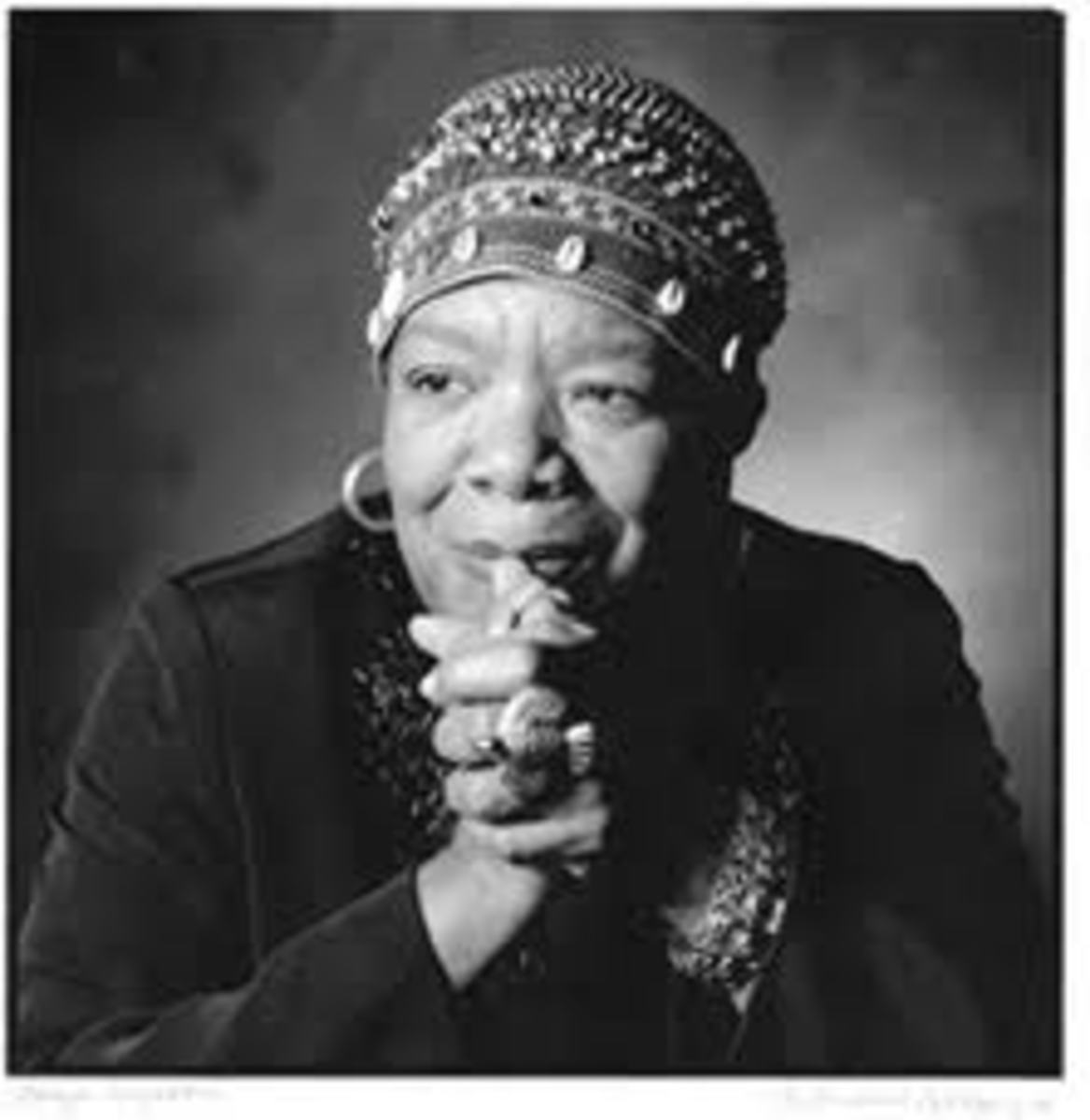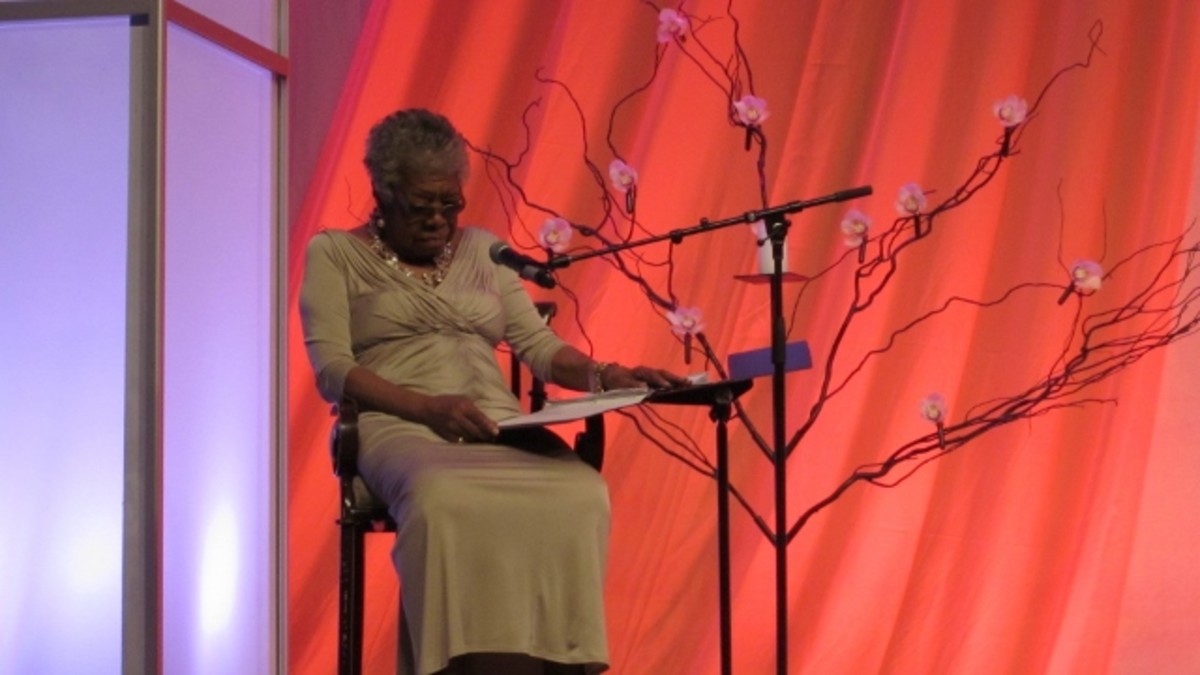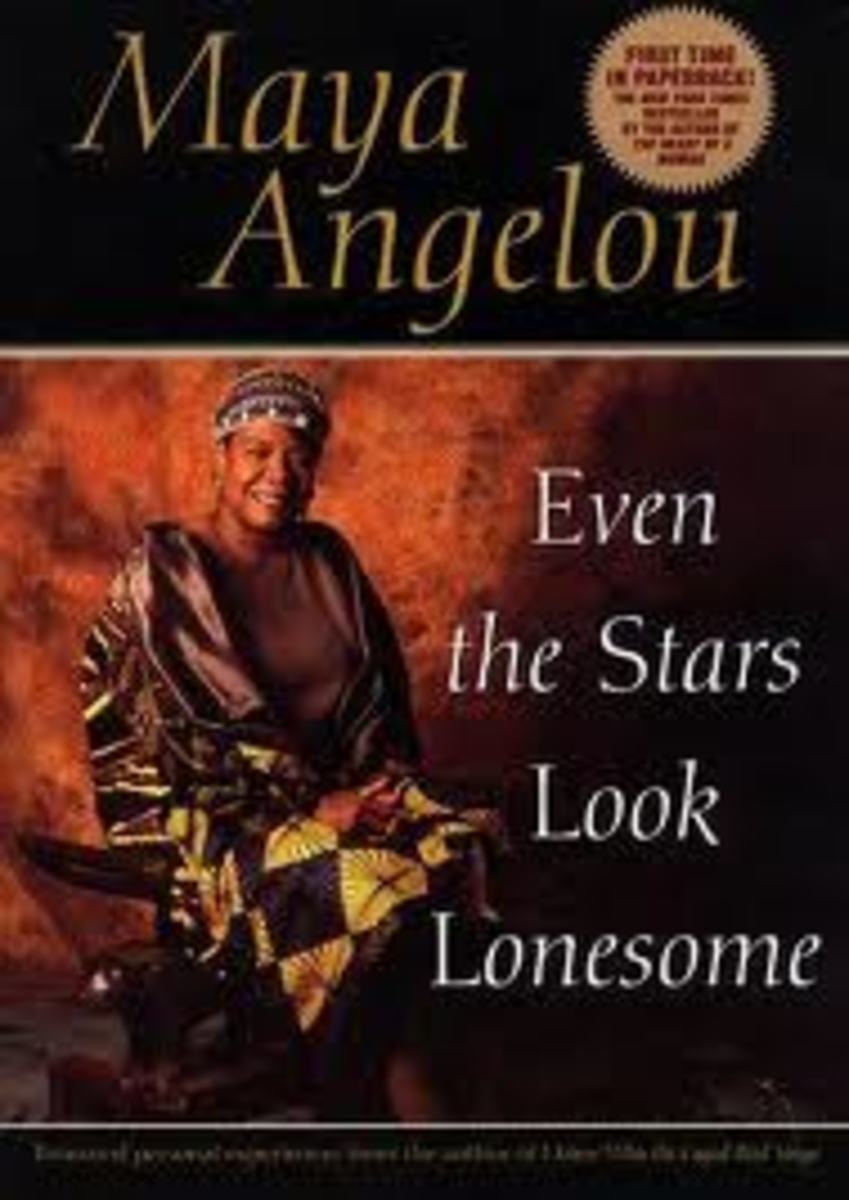Maya Angelou - her life and poetry
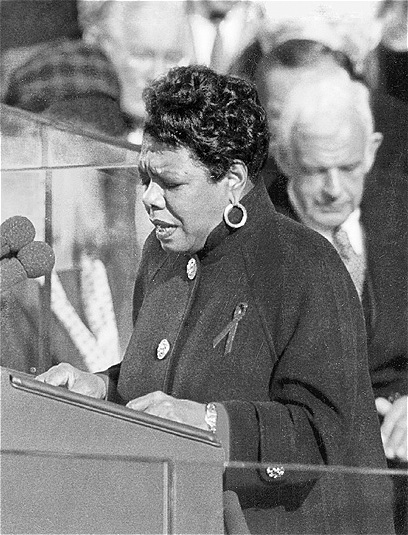
"All my work, my life, everything I do is about survival, not just bare, awful, plodding survival, but survival with grace and faith. While one may encounter many defeats, one must not be defeated."
~ Maya Angelou
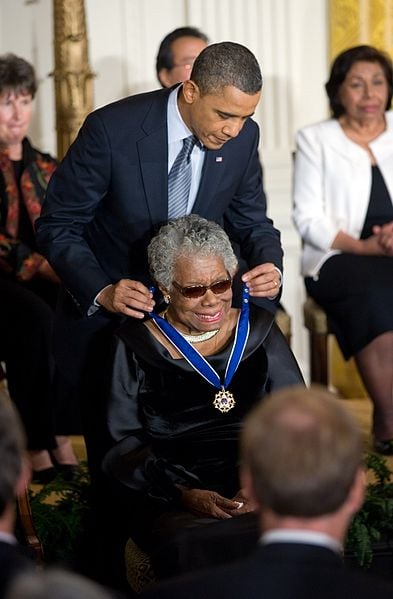
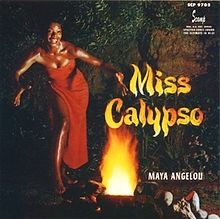
Maya Angelou is probably our greatest living American poet and writer today. Her words resonate on the pulse of a nation and represent not just women's poetry, not just African-American poetry, but a people's poetry. Her poems resonate with us because they are raw and speak a truth. To anyone who has struggled in life, Maya Angelou's poetry is the foundation that supports and understands a life's struggle to be voiced and to be heard.
Although Maya Angelou is best known for her volume of autobiographies, especially the series, I Know Why the Caged Bird Sings, she is also quite a prolific poet and her poetry is just as important as her autobiographies.
Angelou, originally named Margaret Ann Johnson when she was born in 1928, was nicknamed "Maya" by her brother Bailey when they were toddlers. She has gone by this first name since then.
She has published seven autobiographies, five books of essays, several books of poetry, and written numerous plays, movies, and television shows.
When she was three years old, her parents divorced and she and her brother were sent by their father to Stamps, Arkansas to live with their paternal grandmother, Annie Henderson. Henderson owned and ran a general story during the Depression and WWII and even though they were living around horrible poverty, Angelou's grandmother made wise investments with money, and they did not have to scrape by during these times.
After living with Henderson for four years, Angelou's father returned and sent the children to live with their mother in St. Louis, MO. At age 8, while living with her mother, Angelou was sexually molested and raped by her mother's boyfriend, Mr. Freeman. Angelou did tell her brother Bailey what happened but not to anyone else. Bailey informed their mother and uncles and it is believed the uncles killed Freeman to avenge her attack. As a result of her trauma, Angelou became mute for five years because she 'felt her voice had killed Freeman because she told.' She lived with this guilt and confusion, but at the same time developed an extraordinary memory, love of books and literature and the keen ability to closely listen and observe the world around her.
Shortly after Freeman was murdered, Angelou and her brother were sent back to her grandmother in Stamps, Arkansas. There she met, Mrs. Bertha Flowers, her teacher and mentor who helped her to speak again. She did this by introducing Angelou to authors, Charles Dickens, William Shakespeare, Edgar Allan Poe, Douglas Johnson and James Weldon Johnson. These authors would affect her life and career as well as African-American female artists, Frances Harper, Anne Spencer, and Jessie Fauset.
I Know Why the Caged Bird Sings, covers her childhood and early adult experiences and this is where we learn of the incidents that happened to her. With the publication of this autobiography in 1969, Angelou received international recognition and acclaim as a writer. She became the first African-American woman who was able to publicly discuss her personal life.
Around the age of fourteen, Angelou and her brother again moved in with their mother who was now living in Oakland, CA. During WWII, Angelou attended George Washington High School in Oakland and studied dance and drama on a scholarship to California Labor School.
Angelou worked during high school as the first African-American female street car conductor in San Francisco. At age seventeen, she gave birth to a son, Guy, three weeks after completing high school.
Her autobiography, Gather Together in My Name, depicts her life from the ages of seventeen to nineteen and "depicts a single mother's slide down the social ladder into poverty and crime." She portrays her life as she moved through a series of relationships, occupations, and cities as she attempted to raise her son without job training or advanced education.
It is during this time in her life that Angelou sank to her lowest, taking on the dubious occupations of madame, prostitute, night-club singer and performer and cast member of the opera, Porgy and Bess.
In 1951, Angelou married Greek electrician and aspiring musician, Enistoseous (Tosh) Angelos during a time when there was great condemnation of interracial marriage and against her parents wishes. During the marriage Angelou worked as a modern dancer and formed a dance team with another girl. This marriage ended in 1954 and she worked professionally in clubs around San Francisco. While working as a Calypso dancer at a club called, The Purple Onion, the manager changed her name professionally to Maya Angelou and it has remained this ever since then.
Angelou toured Europe with a production of Porgy and Bess during 1954-55 and studied and gained proficiency in several languages. In 1957, she recorded her first singing album, Miss Calypso.
Her writing career really began when she met James O. Killens and he persuaded her to move to New York City to concentrate on writing. There she joined the Harlem Writer's Guild and met several African-American authors and Angelou was published for the first time.
In 1960, began Angelou's activist time and she supported and performed in benefits for the Southern Christian Leadership Conference. She also began her pro-Castro and anti-apartheid activism during this time.
She met with South African freedom fighter Vusumzis Make and moved to Cairo and lived with him. Here she worked as an associated editor to a weekly English-language newspaper, The Arab Observer.
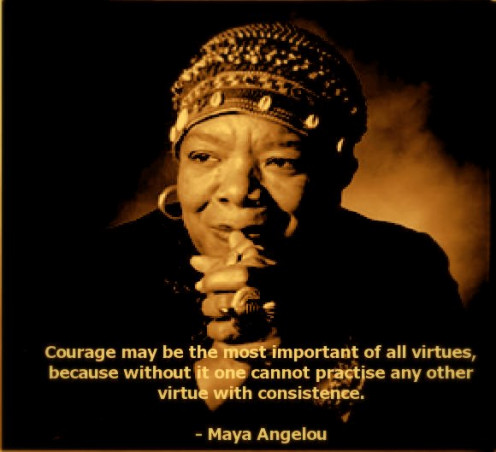
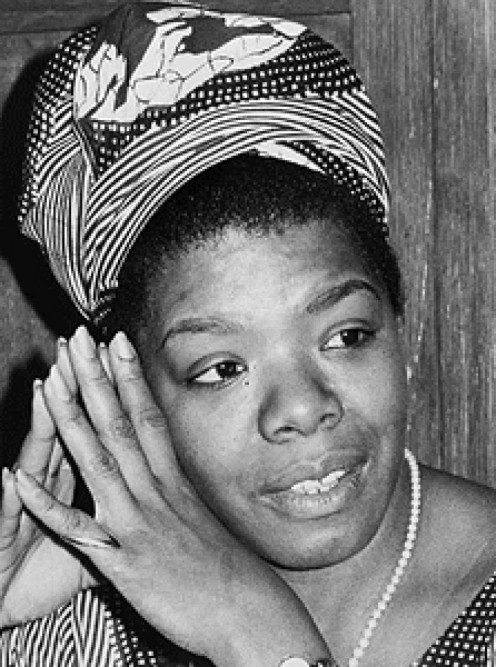
Angelou's relationship with Make ended in 1962 and in 1965, Angelou left Ghana and returned to the United States, working for both Martin Luther King, Jr. and Malcom X in the civil rights movement. With Malcom X's assassination, Angelou was devastated and drifted along finally deciding to join her brother in Hawaii. In l967, she returned to NYC where there Jerry Purcell, a friend provided her with a stipend to support her writing.
In 1968, devastated by MLK, Jr.'s assassination she wrote, produced and narrated, "Blacks, Blues, Black!" a ten part series of documentaries depecting the connection between blues music and African-American culture and heritage.
During the 1970's, Angelou married again to Welsh carpenter, Paul du Feu, she was nominated for a Tony Award on Broadway for her role in Look Away, she met Oprah Winfrey and became her close friend and mentor and in 1981, divorced again, she accepted the lifetime Reynolds Professorship of American Studies at Wake Forest University in NC. She remains there today.
Angelou's poetry
During the 1970's, Angelou became known as the "black woman's poet laureate," but today I think her poetry resonates for all women and all people. She published her first volume of poetry in 1971, Just Give Me a Cool Drink of Water 'fore I Diiie, which was nominated for the Pulitzer Prize.
Angelou fell in love with poetry in Stamps, Arkansas when she was a child and mentored by her beloved teacher, Bertha Flowers. Flowers encouraged Angelou to recite poems and this helped her to speak again, after five years of muteness.
"On the Pulse of Morning," is Angelou's most famous poem and this is the one she read at President Bill Clinton's inauguration in 1993. Her theatrical performance was just as important as the words that day.
Her other poem she is famous and remembered for is "I Know Why the Caged Bird Sings," which explains her years of muteness and her need to express herself the rest of her life.
She read and recited "A Brave and Startling Truth" in 1995, at the 50th Anniversary of the United Nations. Her poem "We Had Him," about Michael Jackson was read at Jackson's funeral by Queen Latifah.
In 1976, she published another volume of poetry, Oh Pray My Wings Are Gonna Fit Me Well.
And, in 2003, Angelou wrote and published the poem you see below, one of my favorites of hers. It goes along with her life philosophy that one may encounter many defeats, but one must not be defeated.
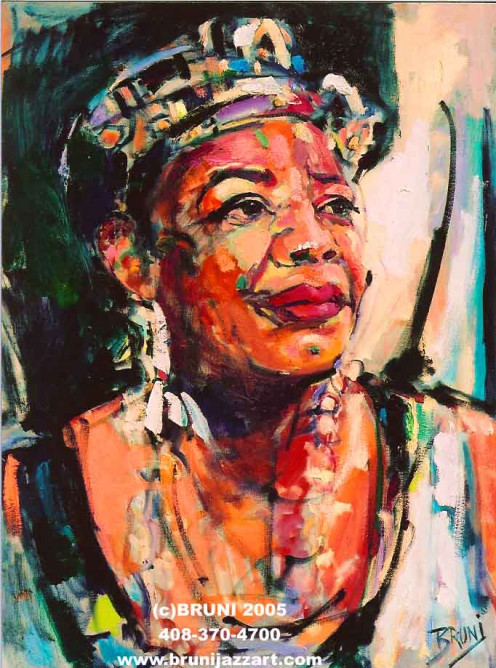
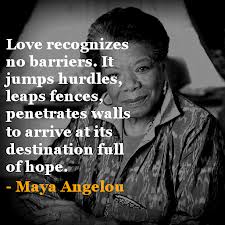
"Still I Rise" by Maya Angelou
You may write me down in history
With your bitter, twisted lies
You may trod me in the very dirt
But, still like dust I rise.
Does my sassiness upset you?
Why are you beset with gloom?
'Cause I walk like I've got oil wells
Pumping in my living room.
Did you want to see me broken?
Bowed head and lowered eyes?
Shoulders falling down like teardrops.
Weakened by my soulful cries.
Does my haughtiness offend you?
Don't you take it awful hard
'Cause I laugh like I've got gold mines
Diggin' inn my own back yard
You may shoot me with your words,
You may cut me with your eyes,
You may kill me with your hatefullness,
But, still like air, I'll rise
Does my sexiness upset you?
Does it come as a surprise
That I dance like I've got diamonds
At the meeting of my thighs?
Out of the huts of history shame
I rise
Up from a past that's rooted in pain
I rise
I'm a black ocean, leaping and wide,
Welling and swelling I bear in the tide
Leaving behind nights of terror and fear
I rise
Into a daybreak that's wondrously clear
I rise
Bringing the gifts that my ancestors gave,
I am the dream and the hope of the slave
I rise
I rise
I rise.
I think that Maya Angelou's entire life is reflected in this poem. Although, beaten down and degraded since the age of eight, she rose and found her voice in a world that constantly slapped her down. I think this poem best reflects Maya Angelou as a person - I rise. Two simple words but so gloriously true. If we can remember these two words throughout life, then our lives will not have been lived in vain.
Update: Sadly, Maya Angelou passed away quietly at her home in N. Carolina on May, 28, 2014. She was surrounded by her family and the life and times of a literary giant has ended. May she rest in peace. She was and still is such an inspiration to so many. She was truly a "phenomenal woman," and she ultimately 'has risen.'
Copyright (c) 2013 Suzannah Wolf Walker all rights reserved



